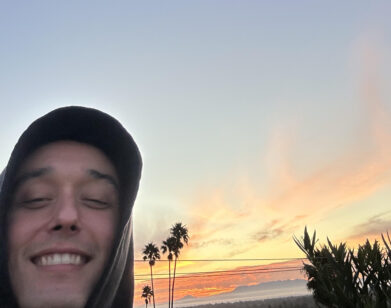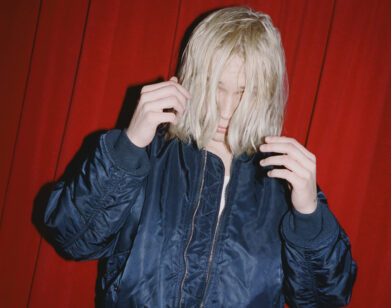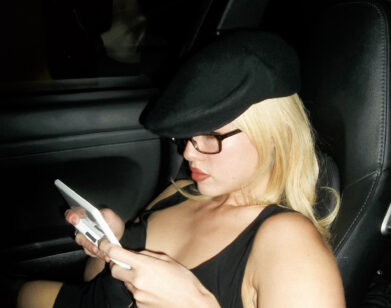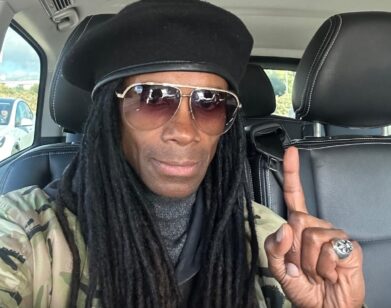Discovery: Jesse Boykins III
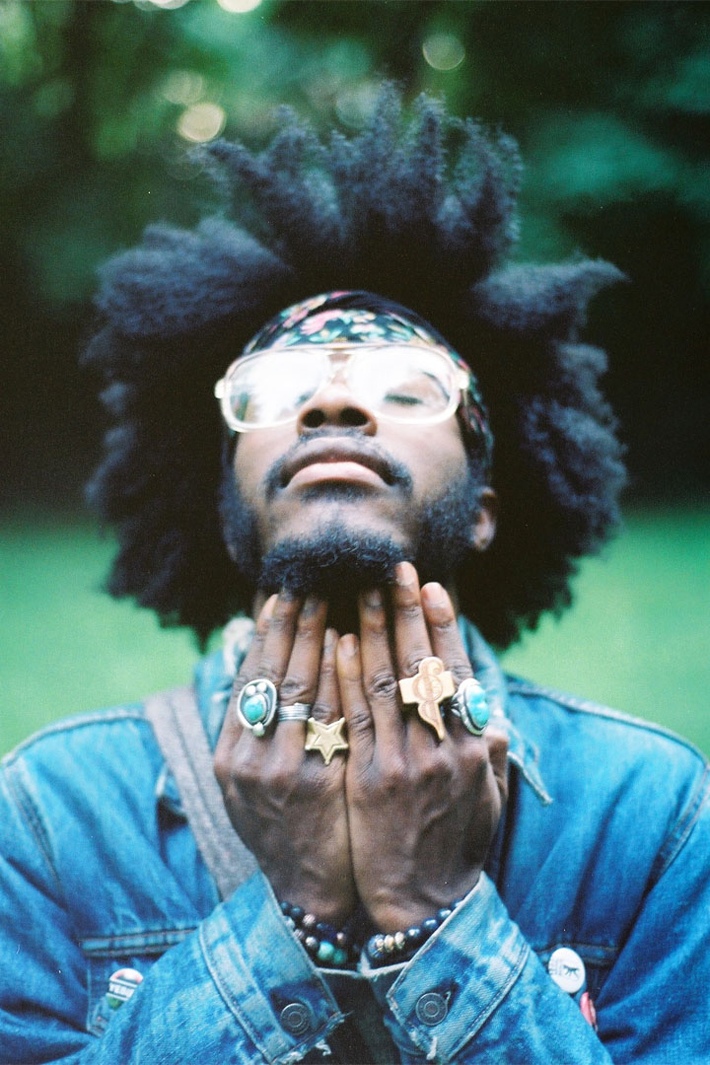
ABOVE: JESSE BOYKINS III. PHOTO COURTESY OF SETH FLUKER.
At the risk of compromising our journalistic integrity, we have to say it: Jesse Boykins III is very cool. He’s an unruffled pioneer of what he calls “world soul,” and he possesses a distinctly cosmopolitan approach to music-making. His attire, which immediately draws the eye, is a collage of several cultures across many different time periods—both warmly familiar and entrancingly exotic.
Raised in Jamaica, then Miami, and now living in New York, Boykins picked up singing from his aunts, and retro tones are a mainstay in every single song he creates. His newest work, Zulu Guru, is no exception. Teaming with Brooklyn DJ, producer, and photographer Melo-X, JBIII has put together a collection of songs that is as every bit as soulful, variegated, and dynamic as he is. It’s near-surreal. Is it surprising, then, that he cites Marcel Duchamp as a major influence?
We sat down with him recently to chat about the new collaboration.

HIS NEW ALBUM: Zulu Guru was made with me and Melo-X. Me and Melo go back [to], like, 2007. He’s a really good fucking DJ, also a really good producer and MC. And we always talked about making music.
AN ISLAND IN THE SUN: Guinea is an island off the coast of Africa. I got asked to perform with the rest of my crew, the Romantic Movement, and we were there for like a week. It was a good experience; we shot a video, saw the rainforest and went to a couple villages. They speak Spanish, so I was trying to speak Spanish to everybody. It was cool. The food was rough. I had a lot of trail mix. But I’m Jamaican; I got a strong stomach, so I wasn’t trippin’. But I got back here and definitely got a burger.
HOW HIS AUNTS GAVE HIM MUSIC: I grew up in Jamaica, until I was, like, 10 years old. Music was instilled in us really early. My aunts—they sang [in a] choir, a lot of doo-wop and gospel music—believed that if you were musically inclined, it would transfer into other subjects, in your curriculum, you know, and art. It definitely opened your mind in a different way. And I couldn’t draw. I couldn’t really play any instruments, ’cause I was too small to play anything, so I just sang. My cousins played guitar and piano, and I wanted to be part of the crew. The first I remember singing—I was, like, seven—was “Silent Night,” on Christmas, a little solo wave, I got good reviews, and I liked it.
JOINING THE GRAMMY JAZZ ENSEMBLE: I was in Miami, I was 16, my senior year. My music teacher made me audition for it, and it was jazz, and I didn’t really know what it was; I only listened to R&B and gospel and hip-hop.
It was weird, ’cause I had never heard of jazz and then a month later I’m in a room with a bunch of people who’ve been singing jazz their whole life. They’re looking at me like, “Oh, this kid; he’s not even about that life for real.” I was new to it, so they’d be like “Man, this Miles Davis album is so classic,” and everybody on the bus would be like, “He don’t know who Miles Davis is? Why are you here?” So I had to learn really fast. Everyone would go out, and I stayed in my hotel and played jazz so I could step up my game.
And that’s how I came to the New School and moved to New York, because I was recruited from the Grammy Jazz Ensemble.
HOW HE CRAFTS SONGS: I am a storyteller. I think of songs like movie scripts. I like beginning, middle, suspense, and I like an ending to be like, “Why did it end like that or what happened or is there going to be another song that explains that one?”
ON HIS UPCOMING DOCUMENTARY: I’ve actually been shooting a documentary for the past year and a half now, on women. I’m trying to release it with my solo LP that’s coming out next year. I’ve just been interviewing women from the ages of 18 to 65 from everywhere that I’ve traveled, so like: New York, LA, Atlanta, DC, Germany, Rotterdam, Amsterdam, Tokyo, Madrid, Barcelona…
THE MASCULINE VS. THE FEMININE: All I preach is a man being able to understand the masculine and the feminine. Knowing how to balance the two, understanding both aspects. Growing up in the 21st century, everyone’s like, “I’m a man, I’m not gonna cry.” Nah, if an emotion affects you, express it. You never know what that emotion is going to open up inside of you or inspire. I feel like that’s why a lot of women are more creative than men.
AMERICAN VS. EUROPEAN AUDIENCES: I try not to acknowledge it too much, you know, but I feel it for sure. Let’s say I do a show in Belgium, in Brussels, where the men kiss each other when they say hello. The vibe is different. They love women, but they don’t care, you know, there’s love. And then I come here, I do a show, and all the dudes are like, “Grrr…” And I’m singing love songs. There are beautiful women here, and I’m like, “Why are you mad? What’s the problem?” I’ve definitely been confronted or had altercations at my shows in the States.
ART AS HISTORICAL TRADITION: Art is marketed now in a way it hasn’t been before. Go back to Picasso or Van Gogh, it was art, and it wasn’t like, you know, “What we gonna do to sell this art to Coca-Cola?” Now it’s like, if something is beautiful, it’s automatically acknowledged that it’s for sale. When I think about the ’80s and the art scene in New York, I think of Keith Haring or Jean-Michel Basquiat. When they started out, they didn’t want to make money… they just did.
When I write a song, I’ll play it for Pepsi, but I didn’t write it with that intention. Art means it comes from the heart.
ON THE IMPORTANCE OF TRAVELING: Traveling is probably… shit, a good half of me. I got a big imagination, so it’s cool to imagine how something’s going to be and then actually live it. Like Tokyo and how I imagined it, then wake up in fucking Tokyo, and see[ing] how are the people, how do they communicate with each other in public. It’s beautiful. In Estonia, the sun doesn’t set until midnight. The sun rises at 3:45 a.m.
All those things you thought were important in your culture; they’re not worried about it in theirs. And hopefully that transmits into my art. The simple form of traveling is the ultimate fruit.
ZULU GURU COMES OUT OCTOBER 30. FOR MORE INFORMATION ON JESSE BOYKINS III, VISIT HIS WEBSITE.

